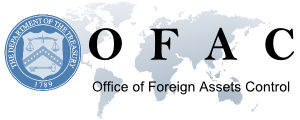OFAC Issues FAQs on Delisting Petitions
On April 20, 2017, the United States Department of the Treasury’s Office of Foreign Assets Control (OFAC) issued Frequently Asked Questions (FAQs) regarding petitions for removal from OFAC’s Specially Designated Nationals and Blocked Persons List (SDN List). In doing so, OFAC has taken a big step forward in better realizing the objectives of U.S. sanctions programs by underlining the seriousness with which it takes delisting requests. For this, OFAC should be commended, as its delisting process represents a key opportunity to ensure that sanctions targets remediate their behaviors in a manner conducive to support U.S. national security and foreign policy interests and objectives.
Here is OFAC speaking to the purposes underlying its targeted sanctions programs:
The power and integrity of [OFAC] sanctions derive not only from its ability to designate and add persons to the [SDN List], but also from its willingness to remove persons from the SDN List consistent with the law. The ultimate goal of sanctions is not to punish, but to bring about a positive change in behavior…Maintaining the integrity of U.S. sanctions is a high priority for OFAC and is the driving principle behind its rigorous review process that evaluates every request for removal individually on its merits and applies consistent standards to all…
It is not the first time that OFAC has publicly identified the key principle underlying its designation programs. For instance, in June 2014, as part of a Sanctions 101 Q-and-A with then-OFAC Director Adam Szubin, OFAC noted that “[s]anctions are a means to an end; the ultimate goal of sanctions is behavioral change. OFAC…seeks to respond to those who demonstrate a change in the behavior that resulted in sanctions, to reward their conduct and incentivize others to act similarly.”
In underlining this principle, OFAC undertook its largest delisting action ever when it removed the names of 308 individuals and entities formerly associated with the then-defunct business empire known as the Cali Cartel. Citing its historical delisting action as a demonstration of the success of U.S. sanctions, OFAC stated that “[t]he primary goal for sanctions is behavioral change; the people and entities delisted today credibly showed that they have stopped engaging in sanctionable activities…” More generally, OFAC noted that “[w]hen considering whether to remove a person or entity from the SDN List, OFAC generally considers evidence that there has been a change in the circumstances or activities since the initial designation.” Evidencing its apparent willingness to remove parties from its SDN List, OFAC further noted that it had “removed more than 800 persons from its SDN List since 2012 and more than 1,300 in the past seven years.”
More recently, then-Treasury Secretary Jack Lew provided a broader summation of learned principles in the formation and conduct of U.S. sanctions policy. This included lessons on how to appropriately leverage sanctions so as to achieve U.S. foreign policy objectives, including in the specific context of targeted sanctions. In his remarks, Secretary Lew clarified that “the underlying goal of all sanctions is an effort to change behavior. Sanctions are not meant to dole out punishment for past actions. They are forward-looking, intended to…create pressure to change future behavior.” It thus follows, according to Secretary Lew, that “since the goal of sanctions is to pressure bad actors to change their policy, we must be prepared to provide relief from sanctions when we succeed.” Failing this, Lew noted, “we undermine our own credibility and damage our ability to use sanctions to drive policy change.”
Clearly, as evidenced by Secretary Lew’s remarks and the promulgation of its FAQs, OFAC has undergone some deep thinking on how to utilize targeted sanctions to best realize the policy objectives that those sanctions are intended to serve. Providing additional information regarding the delisting process – even if it does not necessarily add much of value to those engaged in the practice of SDN reconsideration – is hopefully a sign of future things to come.


